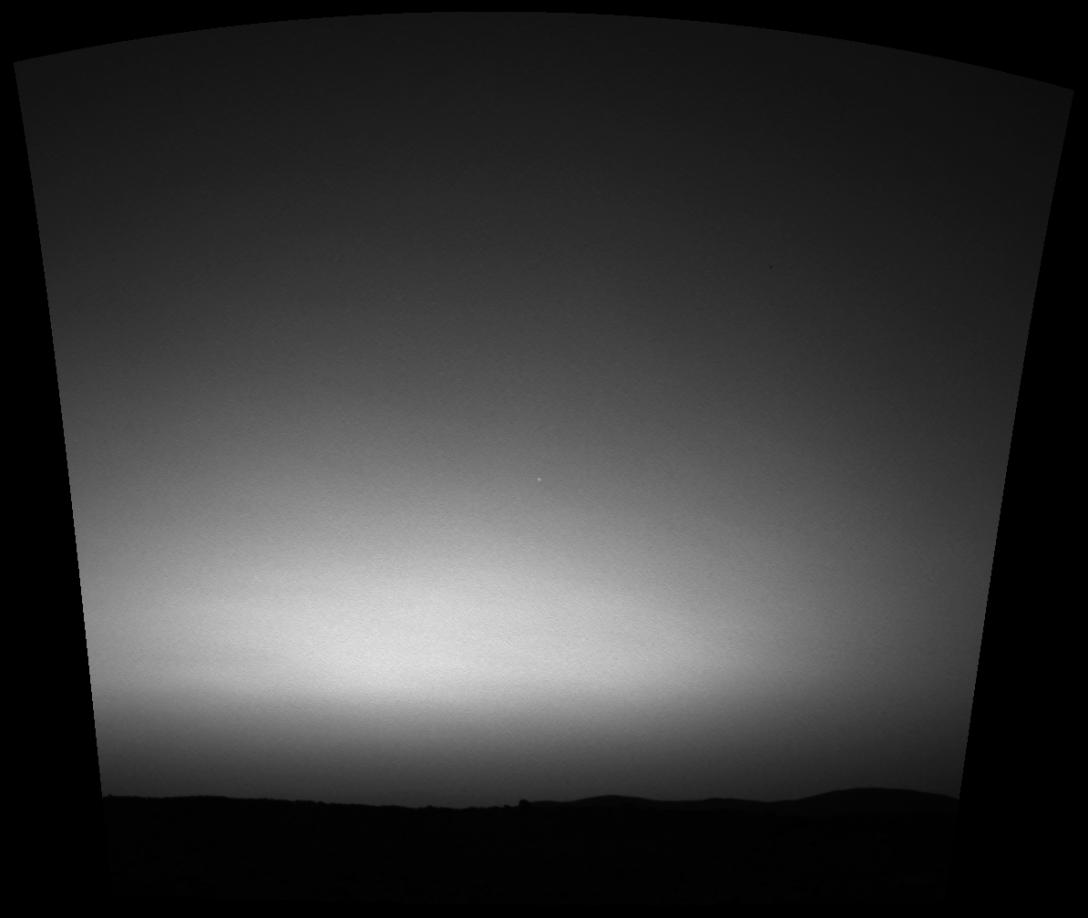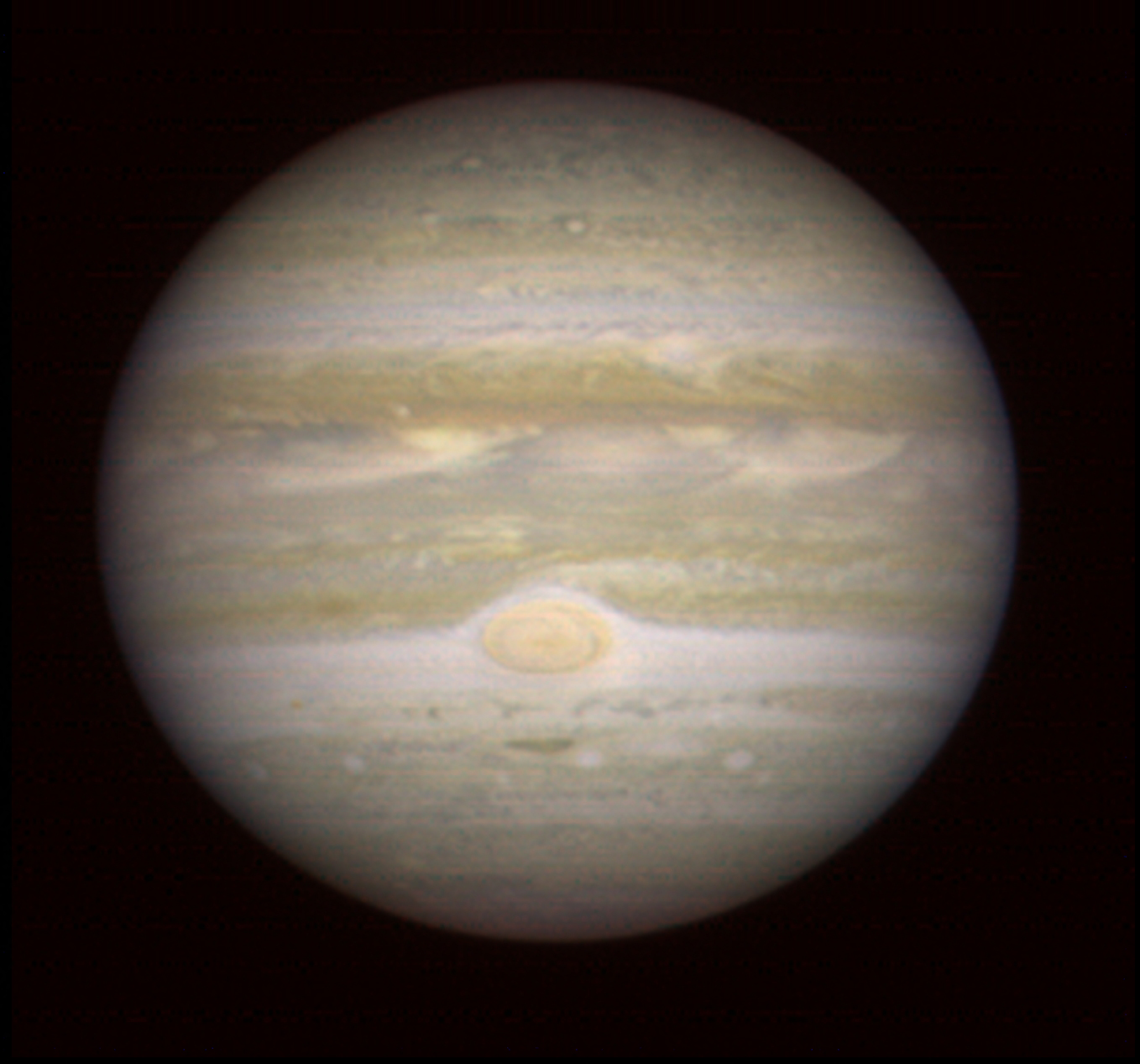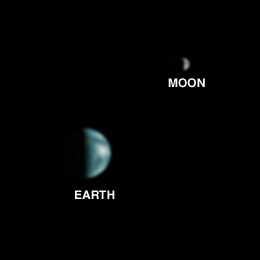New Mars Forums
You are not logged in.
- Topics: Active | Unanswered
Announcement
Pages: 1
#1 2008-04-15 15:48:48
- 3488
- Member
- From: Ashford, Kent, United Kingdom
- Registered: 2008-04-15
- Posts: 23
Re: Astronomy from Mars.
Hi everyone. I am Andrew Brown & some of you may know me from SDC, BAUT & The Spaceport.
Andrew Brown.
"I suddenly noticed an anomaly to the left of Io, just off the rim of that world. It was extremely large with respect to the overall size of Io". Linda Morabito on discovering that the Jupiter moon Io was volcanically active. Friday 9th March 1979.
Offline
Like button can go here
#2 2008-04-15 15:49:20
- 3488
- Member
- From: Ashford, Kent, United Kingdom
- Registered: 2008-04-15
- Posts: 23
Re: Astronomy from Mars.
I had already started this on SDC & The Spaceport, generated huge interest.
Cannot seem to post images here, so linked directly to The Spaceport instead. :mrgreen:
Andrew Brown.
"I suddenly noticed an anomaly to the left of Io, just off the rim of that world. It was extremely large with respect to the overall size of Io". Linda Morabito on discovering that the Jupiter moon Io was volcanically active. Friday 9th March 1979.
Offline
Like button can go here
#3 2008-04-16 03:02:47
- cIclops
- Member
- Registered: 2005-06-16
- Posts: 3,230
Re: Astronomy from Mars.
Hi Andrew and thanks for posting!
Those image links seem broken ![]()
Images can be displayed here by typing: [img]url-to-image-location[/img]
The Spaceport has been added to the newmars wiki list of forums.
[color=darkred]Let's go to Mars and far beyond - triple NASA's budget ![/color] [url=irc://freenode#space] #space channel !! [/url] [url=http://www.youtube.com/user/c1cl0ps] - videos !!![/url]
Offline
Like button can go here
#4 2008-04-16 14:14:14
- 3488
- Member
- From: Ashford, Kent, United Kingdom
- Registered: 2008-04-15
- Posts: 23
Re: Astronomy from Mars.
Hi ciclops, let me try it again. Thank you very much for adding The Spaceport to the links.
Earth as Morning Star, one hour before sunrise from Gusev Crater, MER A Spirit.
Phobos transiting the Sun, MER B Opportunity Sol 45.
Sol 709, Phobos in front of the Sun. MER B Opportunity.The irregular shape of Phobos is
clearly visible against the Sun. This is the only time as yet, that the entire profile of Phobos has been seen against the Sun. Worth mentioning, from Mars, the Sun on average appears only 20' across, where as from Earth it is approx 30' across & on average 44% as strong as from Earth.
Phobos & Deimos, both in front of Taurus the Bull. MER A Spirit. Familiar constellation, but from the surface of Mars, at times has two different moons.
Sol 696. Phobos seen here against the Hyades in Taurus the Bull by MER A Spirit. The bright star to the left of Phobos is Aldebaran / Alpha Tauri.
Phobos slipping into the shadow of Mars. Sol 675 MER A Spirit.
Phobos & Deimos, north of Sagittarius the Archer, MER A Spirit.
A predawn streak. Viking 2 orbiter or a Cepheid meteor.
1). Could be, the long silent Viking 2 Orbiter. This observation may well be that of the Viking 2 Orbiter catching the morning Sun, whilst close to Periareion. It issuggested that the 'object' moved four degrees in 15 seconds, a close match for the Viking 2 orbiter.
2). Another, possibly more likely explanation is the first ever meteor (shooting star) seen from the surface of the Red Planet.
This could have been part of a meteor shower whose parent body is Comet 114P/Wiseman-Skiff.
Because the radiant is in the constellation Cepheus, this meteor shower could be called the Martian "Cepheids", as the radiant for this suspected Martian Meteor Shower is in Cepheus. The timing is perfect, as this was at the peak of that suspected meteor shower & the direction of the streak, also points towards Cepheus, although of course the image does not reveal the direction of travel of the streak.
So any one's guess, 1 or 2?
A more detailed labled image of the above.
Morning Stars, Earth & Jupiter rise in predawn sky, Meridinai Planum, MER B Opportunity. Earth the brightest object rising in the centre, Jupiter appearing on the left.
Jupiter on: Thursday 11th January 2007 MRO HiRISE. As viewed from Mars, Jupiter was at opposition & the MRO HiRISE obtained this remarkable image from Mars orbit.
Crescent Earth & Moon on: Wednesday 3rd October 2007, at a range of 142 million kilometers. Imaged by MRO HiRISE from Mars orbit.
Andrew Brown.
"I suddenly noticed an anomaly to the left of Io, just off the rim of that world. It was extremely large with respect to the overall size of Io". Linda Morabito on discovering that the Jupiter moon Io was volcanically active. Friday 9th March 1979.
Offline
Like button can go here
#5 2008-04-17 02:42:22
- Rxke
- Member
- From: Belgium
- Registered: 2003-11-03
- Posts: 3,669
Re: Astronomy from Mars.
Nice stuff Andrew. Welcome to the boards ![]()
Offline
Like button can go here
#6 2008-04-17 07:06:38
- 3488
- Member
- From: Ashford, Kent, United Kingdom
- Registered: 2008-04-15
- Posts: 23
Re: Astronomy from Mars.
Thank you very much for the welcome Rxke. Only just joined yesterday already have been well received.
I lkurked foir quite a while, not sure if New Mars was above me, so to speak, but I thought in the end, I'm not stupid, so decided to sign up. I'm very glad I did. ![]()
I have created this thread on both Space.com & The Spaceport & on both it generated a huge amount of interest.
After all, humans WILL land on Mars, there's no doubting it in the longer term, I'm sure of that as I am of the Sun rising tomorrow morning. As life left the ocens to colonise land, human life WILL spread throughout the solar system eventually. The Moon & Mars, obviously first of all, then perhaps Mercury, 1 Ceres, 2 Pallas, 4 Vesta & the giant Jupiter moon Callisto, perhaps in the next wave.
Humans on Mars, will be subjected to Martian Astronomical phenomena, just as we are on Earth, changing seasons, moon rising & setting, lunar eclipses, solar eclipses, outer planet oppositions (from Mars, Saturn will be at opposition on Sunday 18th May 2008. I've requested the MRO HiRISE to take a peek, as has done so with Jupiter last January & hopefully will do again).
With Mars, there are no shortages of interesting Astronomical Phenomena. Phobos & Deimos transiting the Sun, also going into eclipses in Mars's shadow, three inferior planets (Mercury, Venus & Earth), at times transiting the Sun & being Morning & Evening stars, though Mercury will always appear very close to the Sun, but will still be visible at times in the Mornings & Evenings. Not to mention Martian Meteor Showers.
Sol 449, MER B Opportunity. Earth as Evening Star. 
Sol 67 MER A Spirit. Betelgeuse, Bellatrix & Orion's Belt, Orion the Hunter. Note how Orion trails differently than on Earth, as the rotational axis points in a different direction on Mars.

Orion the Hunter. Varying PanCam exposures. Sol 632 MER A Spirit.
Click on link for full size image.
Sol 668 Labled. MER A Spirit. Mars South Polar night sky Meteor Search. .
.
Andrew Brown.
"I suddenly noticed an anomaly to the left of Io, just off the rim of that world. It was extremely large with respect to the overall size of Io". Linda Morabito on discovering that the Jupiter moon Io was volcanically active. Friday 9th March 1979.
Offline
Like button can go here
#7 2008-04-17 09:05:45
- cIclops
- Member
- Registered: 2005-06-16
- Posts: 3,230
Re: Astronomy from Mars.
Now here's a question for Martian astronomers. On Earth the brightest object in the sky after the Sun and Moon is Venus. Will Earth be the brightest object in the Martian sky after the Sun, Phobos and Deimos - or will it be Jupiter?
[color=darkred]Let's go to Mars and far beyond - triple NASA's budget ![/color] [url=irc://freenode#space] #space channel !! [/url] [url=http://www.youtube.com/user/c1cl0ps] - videos !!![/url]
Offline
Like button can go here
#8 2008-04-17 09:11:43
- Vincent
- Banned
- From: North Carolina USA
- Registered: 2008-04-13
- Posts: 623
Re: Astronomy from Mars.
Hello 3488,
Nice shot from Gusev. This is a friendly forum. A little quite but it will pick up I am sure. People seem nice and do not flame you out.
I posted in all the hot spots and put up some non-mainstream thoughts like color, life and water and was treated ok. A lot of the forums will have 37 people wanting proof of those claims when nobody really knows for sure.
Not much of a star man but love pictures. The current imagery has too many strings attached so to speak. I miss the old days.
Vincent
Argument expected.
I don't require agreement when presenting new ideas.
-Dana Johnson
Offline
Like button can go here
#9 2008-04-17 12:26:57
- noosfractal
- Member
- From: Biosphere 1
- Registered: 2005-10-04
- Posts: 824
- Website
Re: Astronomy from Mars.
Now here's a question for Martian astronomers. On Earth the brightest object in the sky after the Sun and Moon is Venus. Will Earth be the brightest object in the Martian sky after the Sun, Phobos and Deimos - or will it be Jupiter?
When this image was taken in 2003 ...
http://www.msss.com/mars_images/moc/2003/05/22/
Earth had an apparent magnitude of -2.5, while Jupiter was at -1.8. I think this is fairly representative of the general situation. However, I seem to recall reading that Jupiter will be brighter on occasion.
Fan of [url=http://www.red-oasis.com/]Red Oasis[/url]
Offline
Like button can go here
#10 2008-04-17 12:37:20
- Vincent
- Banned
- From: North Carolina USA
- Registered: 2008-04-13
- Posts: 623
Re: Astronomy from Mars.
Love that blue Earth. Sort of like a tan or red Mars.
Love good color. Did I say that already? Hats off for some good color.
Vincent
Argument expected.
I don't require agreement when presenting new ideas.
-Dana Johnson
Offline
Like button can go here
#11 2008-04-17 18:07:24
- 3488
- Member
- From: Ashford, Kent, United Kingdom
- Registered: 2008-04-15
- Posts: 23
Re: Astronomy from Mars.
Now here's a question for Martian astronomers. On Earth the brightest object in the sky after the Sun and Moon is Venus. Will Earth be the brightest object in the Martian sky after the Sun, Phobos and Deimos - or will it be Jupiter?
When this image was taken in 2003 ...
http://www.msss.com/mars_images/moc/2003/05/22/
Earth had an apparent magnitude of -2.5, while Jupiter was at -1.8. I think this is fairly representative of the general situation. However, I seem to recall reading that Jupiter will be brighter on occasion.
Hi noosfractal & cIclops.
On Thursday 11th January 2007, when MRO HiRISE imaged Jupiter during opposition on that date, Jupiter was blazing away at magnitude -2.65, just north of the star Lambda Librae.
The Earth reached magnitude -2.08 on Saturday 15th September 2007, when the Earth reached greatest eastern elongation & blazed in the evening skies of Mars. Our Moon was magnitude +3.00, approx 15' away to the west.
The Earth appeared in front of Ophiuchus on that date, the Sun in front of Libra.
Earth & Moon if viewed through a telescope from the surface of Mars would have appeared as a pair of half phases.
Not too unlike: the MGS Earth / Moon shot from Mars orbit.
the MGS Earth / Moon shot from Mars orbit.
The MGS MOC observations of Earth & Jupiter from Mars Orbit was incredible, a very close conjuction in Cancer as seen from Mars.
Andrew Brown.
"I suddenly noticed an anomaly to the left of Io, just off the rim of that world. It was extremely large with respect to the overall size of Io". Linda Morabito on discovering that the Jupiter moon Io was volcanically active. Friday 9th March 1979.
Offline
Like button can go here
#12 2008-04-18 02:30:28
- cIclops
- Member
- Registered: 2005-06-16
- Posts: 3,230
Re: Astronomy from Mars.
Earth had an apparent magnitude of -2.5, while Jupiter was at -1.8. I think this is fairly representative of the general situation. However, I seem to recall reading that Jupiter will be brighter on occasion.
By setting the observer location on Mars and running Stellarium (highly recommended) through several orbits of both Earth and Jupiter, it calculated these maximum apparent magnitudes:
Earth: -1.6
Jupiter: -2.7
with Demios -6 and Phobos -7
Jupiter seems to be the winner!
Earth is going to feel very far away for people on Mars, however Jupiter will beckon.
[color=darkred]Let's go to Mars and far beyond - triple NASA's budget ![/color] [url=irc://freenode#space] #space channel !! [/url] [url=http://www.youtube.com/user/c1cl0ps] - videos !!![/url]
Offline
Like button can go here
Pages: 1
